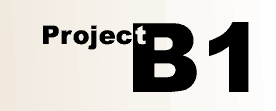
 |
|
|
Project Leader:
|
Researchers:
Research Area:
|
Information: |
||||||
| Research Program: | (click to enlarge) |
|
Our project deals with the collection and analysis of linguistic data that can be used as sources for the pre-colonial history of the ethnic groups in the northern part of Namibia and the southern part of Angola. We are particularly dealing with three types of linguistic data: oral traditions, language and dialect variations, place names. Oral traditions, in our perspective, don't only include chronicles and similar texts of the so-called documentary literature, but also myths, legends and other genres of oral literature. The language and dialect variations are deduced from three different sets of data: firstly, a word list of at least 600 lexical entries taking into account the basic vocabulary as well as the basic cultural vocabulary; secondly, a standardized list of grammatical forms concerning the nominal, pronominal and verbal systems; thirdly, the complete sound inventories. We collect these data from all dialects or dialectal variants of the research area. Our field research is organized in several stages. After having ascertained the basic dialectological data of a selected area, we construct its dialectological grid based on the parametre of dialectal nearness. The method applied is that of lexical and phonological dialectometry. The synchronical network of dialectal relationships achieved in this way provides us with the basis of assignment for all other linguistic sources, namely texts, terminologies (referring for instance to iron work, pottery, hunting, fishing, agriculture and cattle keeping) and place names, which are collected at later stages according to the strategies induced by the dialectal grid. The empirical data base is treated by different methods according to the nature of the data. A major goal is the upgrading of the data to enable further collaboration with other disciplines. Within the special research unit, we collaborate particularly with archaeologist, botanists, ethnologists and geographers. The areas of research covers the language cultures of the Himba (Herero), the Owambo, the Kwangali, Shambyu, Gciriku and Mbukushu, as far as Namibia is concerned and of the Nyaneka, Ngangela-Nyemba and Lucazi as far as Southern-Angola is concerned. The project started in July 1995 and went into its second phase in July 1998 covering the period up to the end of 2001. Already during the first phase, strong links with Namibian partners and counterparts were established. |
| [Main]
[Project B1] [Project B4] [Project
B5] [Project B7]
|